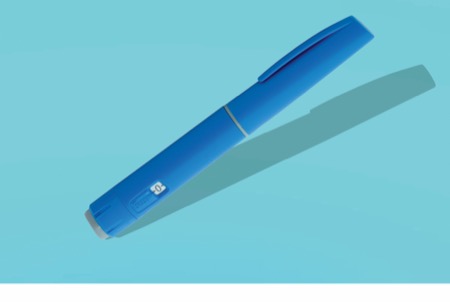Use of glucagon-like peptide-1 receptor agonists before colonoscopy can result in significantly lower quality preparation and repeat procedures, according to a retrospective study published in the American Journal of Gastroenterology.
“It is well known that [GLP-1s] can delay gastric emptying. We observed a trend toward inadequate bowel preparation in patients undergoing colonoscopy who were on [GLP-1s], which raised concerns about practical consequences to these medication side effects,” lead author Rebecca Yao, MD, MPH, an internal medicine resident at Mayo Clinic, in Rochester, Minn., told Gastroenterology & Endoscopy News.
{RELATED-VERTICAL}To study the effects of GLP-1s on bowel prep, the researchers analyzed 265 patients taking GLP-1s and 181 control patients who underwent screening or surveillance colonoscopy at a large academic medical center between December 2021 and 2022. At baseline, the patients had no statistically significant differences except for more patients in the case group having a diagnosis of diabetes.
The investigators found that controls had significantly better mean Boston Bowel Preparation Scale (BBPS) scores than cases (controls, 7.5±2.4; cases, 7.0±1.9; P=0.046) after controlling for diabetes. A BBPS score less than 5 was significantly more frequent among cases than controls (15.5% vs. 6.6%; P=0.01), and cases were more likely to require repeat colonoscopies because of inadequate bowel preparation (18.9% vs. 11.1%; P=0.041).
Causes of Poor Bowel Prep
To Jennifer Christie, MD, the director of the Division of Gastroenterology and Hepatology at the University of Colorado School of Medicine, in Aurora, and the current president of the American Society for Gastrointestinal Endoscopy, GIs need to find out whether the slowing of gastric motility associated with GLP-1s is impairing the effectiveness of bowel prep agents. “The question becomes is it more difficult for patients to adequately clear bowels with a purging agent prior to colonoscopy,” said Dr. Christie, who was not involved with the research.
The study had a retrospective design, was conducted at a single health system, and included a population of mostly non-Hispanic white patients, all of which act as limitations, Dr. Yao and her co-investigators acknowledged. In addition, diabetes is a known risk factor for inadequate bowel prep (Eur J Gastroenterol Hepatol 2018;30[8]:819-826), and previous research found a link between inadequate prep in diabetic patients and GLP-1 use but not in nondiabetic patients using GLP-1s (Front Pharmacol 2023;14:1176206; Pract Diabetes 2017;34[5]:167-168). All these factors necessitate caution in interpreting findings, Dr. Yao said. “Future research could obtain prospective data from a diverse population to evaluate generalizability and validity,” she said.
Dr. Christie told Gastroenterology & Endoscopy News that a prospective randomized controlled study provides “the best way to evaluate the true impact of [GLP-1s] on colon prep and control for the confounders the authors mentioned.” A heterogeneous cohort, she said, may help foster understanding of the agonists associated with poor prep and give “a better sense of comorbidities, medications and other factors that may impact patient ability to complete the prep.”
Specifically, clinicians should explore how well tolerated the prep is by patients on GLP-1s, Dr. Christie added. “Perhaps intolerance played a role in their poor preparation as well.” It may be that GIs should “alter our prep instructions in these patients. Perhaps we need to adjust the way we educate them prior to colonoscopy,” she said.
Dr. Yao advised GIs to consider GLP-1 patients to be at risk for poor quality of bowel preparation. “Clinicians can enhance counseling and educational efforts for this population and consider additional interventions,” she said, “such as extending bowel preparation regimens and scheduling colonoscopies later in the day for high-risk individuals.”
—Sherree Geyer
Drs. Christie and Yao reported no relevant financial disclosures.


